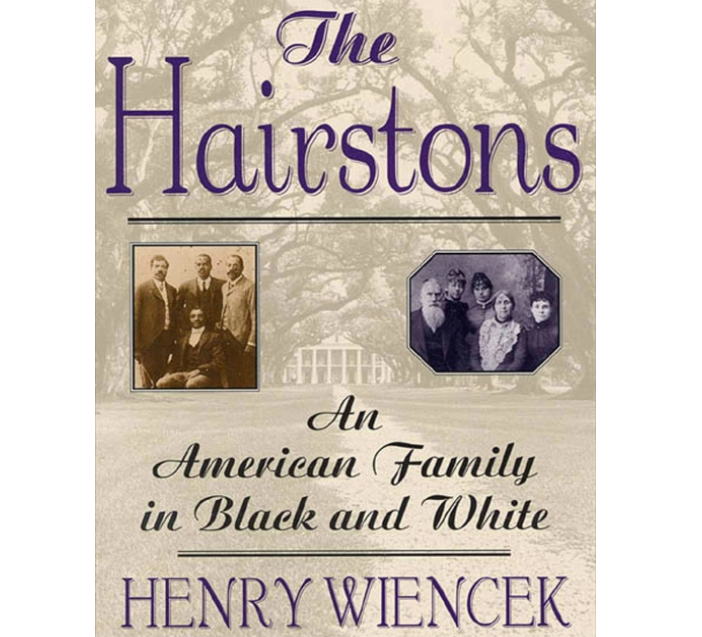 On May 5, 2024 Henry Wiencek, author of The Hairstons: An American Family in Black and White (1999), joined members of the large and extended Hairston clan: Dean Hairston, a family historian whose ancestors were enslaved on the Cooleemee, Oak Hill, and Chatmoss Plantations in North Carolina; Edward Hairston, whose enslaved ancestors lived and worked on the Oak Hill Plantation; and Will Hairston, Coming to the Table co-founder, and heir to the largest enslaver family in the South. Published 25 years ago, the Hairston family saga remains relevant, riveting, heart wrenching, and, ultimately, hopeful. You can access a video of our session here.
On May 5, 2024 Henry Wiencek, author of The Hairstons: An American Family in Black and White (1999), joined members of the large and extended Hairston clan: Dean Hairston, a family historian whose ancestors were enslaved on the Cooleemee, Oak Hill, and Chatmoss Plantations in North Carolina; Edward Hairston, whose enslaved ancestors lived and worked on the Oak Hill Plantation; and Will Hairston, Coming to the Table co-founder, and heir to the largest enslaver family in the South. Published 25 years ago, the Hairston family saga remains relevant, riveting, heart wrenching, and, ultimately, hopeful. You can access a video of our session here.
Through personal stories and dialogue, panelists at this Linked Descendants’ Writers Gathering discussed building relationships while researching, and addressed questions such as: How do we tell our stories? How does one start? How do you know it’s time to stop researching and start writing? How do you find a narrative? Can one be thorough and inclusive while not overwhelming the reader with too much detailed information?
The spark that started Wiencek’s research was a magazine interview with Judge Peter Hairston about his historic home at the former Cooleemee Plantation. This led the author to meet Squire Hairston, a descendant of people enslaved by the white Hairston family. Thus began a nine year undertaking that led him though Hairston plantations in three states. Dean and Ed Hairston made introductions to Black members of the Hairston clan who held the keys to the multiple family lines.
Wiencek addressed his decision to ultimately place himself in the narrative, though he was initially resistant to do so (“I was the unifying theme”); how he handled the inevitable setbacks; and the need for persistence and patience. “Writing is a process of discovery,” he says. The discovery is often in the process of writing, when you “discover things in the material, and in yourself, that you did not know were there.”
Because “the organization of the book really happens organically,” Wiencek did not offer a blueprint for how to organize extensive research and family lines. But he added “… to keep the narrative going, at the end of every chapter, ask yourself a question. Where are you going next?”
For Wiencek, serendipity and personal interactions while searching government documents in-person unlocked doors. There’s no substitute for on-the-ground research, even with improved digital access to historical documents.
In the end, he says, don’t hold back from telling all the stories, regardless how people today might react, “When all else fails, tell the truth.”
Click here to watch the conversation, it was so well-attended (we are only sorry the recorded-view didn’t capture the audience, and all of our wonderful panelists during their discussion on one screen)! We’d love to have a follow-up conversation, please feel free to leave your comments and feedback below (scroll down to comments section here).



I am Hairston family member and researcher. I was so happy to hear Dean speak on the need to continue researching using tools like DNA. I would to be put into contact with him.
This was helpfu! As we linked descendents navigate people’s different responses, it helps to be reminded that it takes time to build relations of trust.